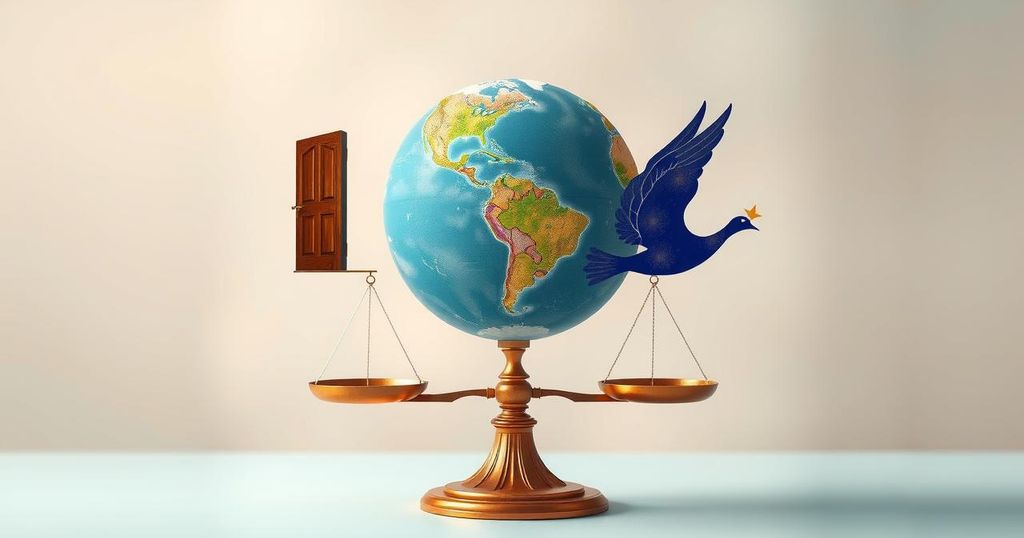The EU has warned Pakistan that its duty-free exporter status hinges on improvements in human rights and media freedoms. This warning follows EU representative Olof Skoog’s visit aimed at discussing human rights issues. Despite benefiting from GSP+ since 2014 with export growth, the EU insists tangible reforms are crucial to maintaining these trade advantages amid growing media restrictions within Pakistan.
The European Union (EU) has issued a warning to Pakistan regarding its duty-free exporter status, emphasizing that it remains contingent on advancements in human rights, media freedom, and labor rights. This announcement followed the weeklong visit of Olof Skoog, the EU’s special representative for human rights, who engaged with Pakistani officials on critical human rights matters and the country’s commitment to address these issues in light of its ongoing assessment under the Generalized Scheme of Preferences Plus (GSP+).
Since being granted GSP+ status in 2014, Pakistan’s exports to the EU have more than doubled. However, the EU reiterated that these trade benefits are reliant on Pakistan’s progress in addressing a range of pressing concerns, including human rights issues. The EU has acknowledged Pakistan as the largest beneficiary of the GSP+ scheme, with exports increasing significantly since its inception, yet it emphasized the necessity of meaningful reforms moving forward.
During discussions, Skoog brought attention to specific areas of concern, including the stringent application of blasphemy laws, the rights of women, the prevalence of forced marriages and conversions, enforced disappearances, and restrictions on freedom of expression and media independence. Despite ongoing criticism from international human rights groups regarding the government’s oppressive tactics, Pakistan’s parliament has recently enacted a law that critics claim undermines free expression.
This new legislation, approved by President Asif Ali Zardari, enables the government to levy heavy penalties and imprison social media users for disseminating disinformation. In response, journalists across Pakistan have expressed their commitment to resist efforts to stifle freedom of speech, highlighting the increasing challenge to media autonomy amid government restrictions. Prime Minister Shehbaz Sharif’s government argues that such measures are essential to combat disinformation in the nation.
The ongoing dialogue between the European Union and Pakistan reflects concerns over human rights and media freedom that have remained central to bilateral trade relations. The EU’s GSP+ trade scheme aims to incentivize developing countries to enhance their standards concerning labor and civil rights. This recent engagement underscores the delicate balance between trade benefits and the imperative for Pakistan to adhere to international human rights standards, especially in a context where freedom of speech and press is under scrutiny within the country.
In conclusion, the European Union has placed significant emphasis on the interconnection between Pakistan’s trade benefits and its commitment to upholding human rights and media freedom. As Pakistan navigates its obligations under the GSP+ framework, it faces immense pressure to enact substantial reforms in light of continuing concerns over governmental restrictions on expression and the media. The actions taken moving forward will be pivotal in determining the future of EU-Pakistan trade relations.
Original Source: apnews.com






